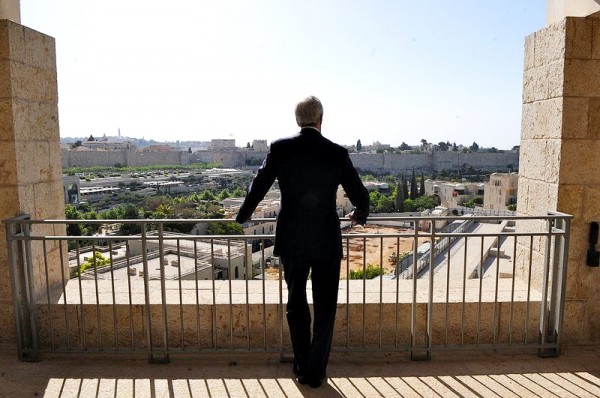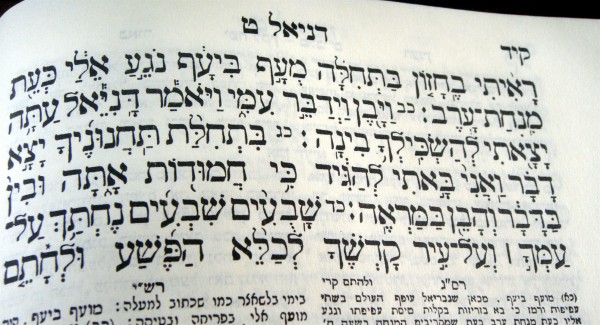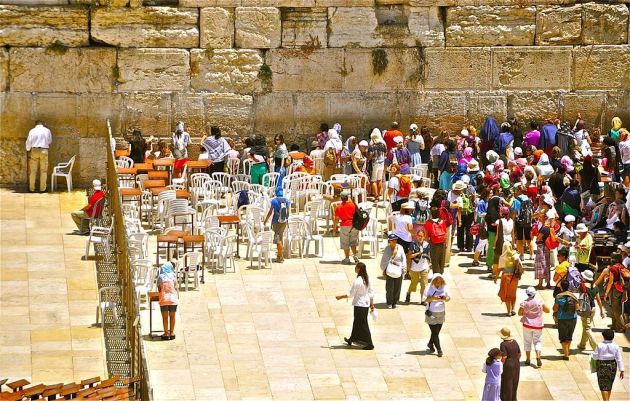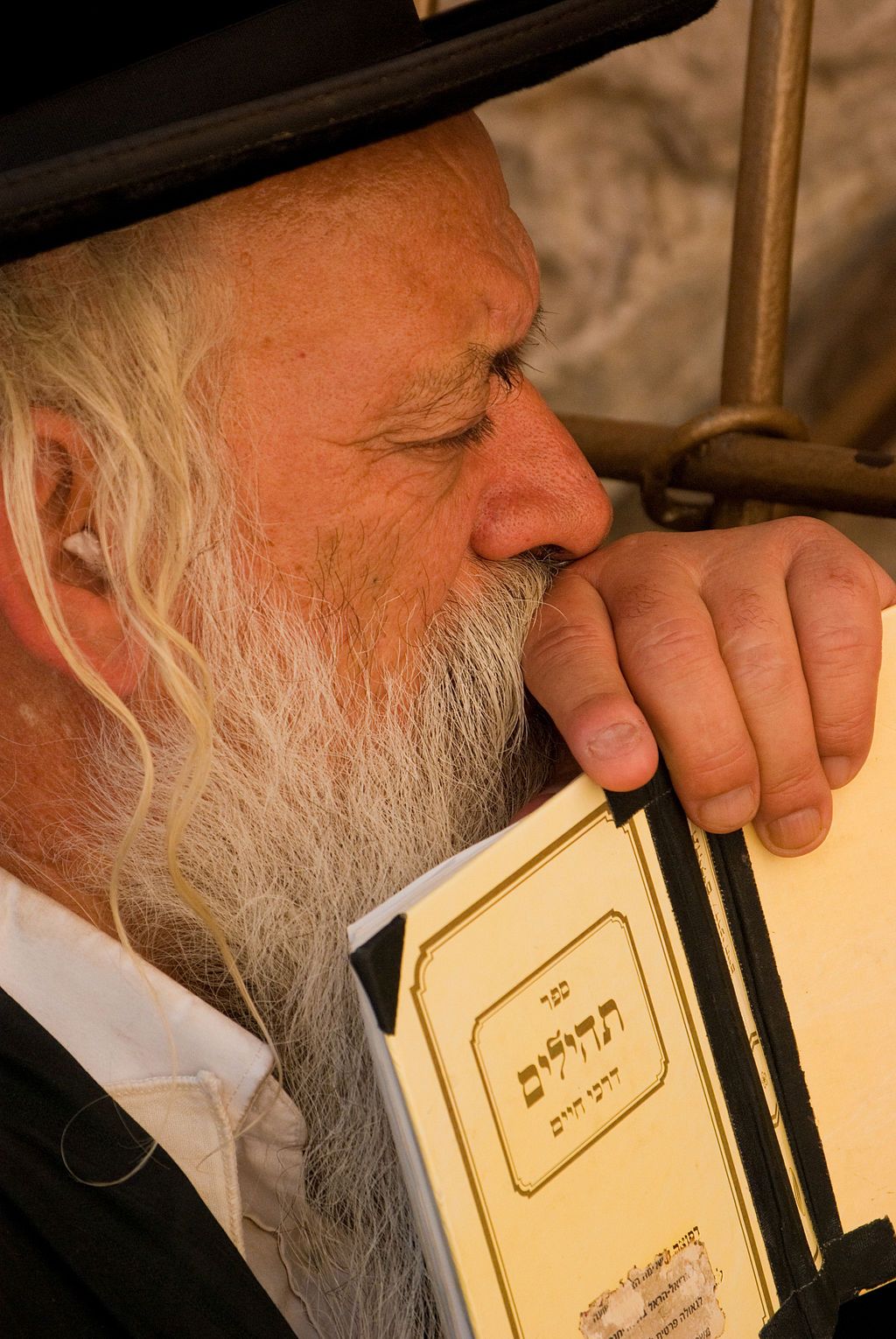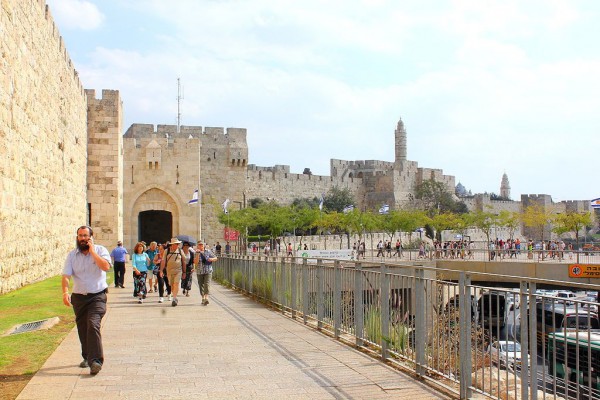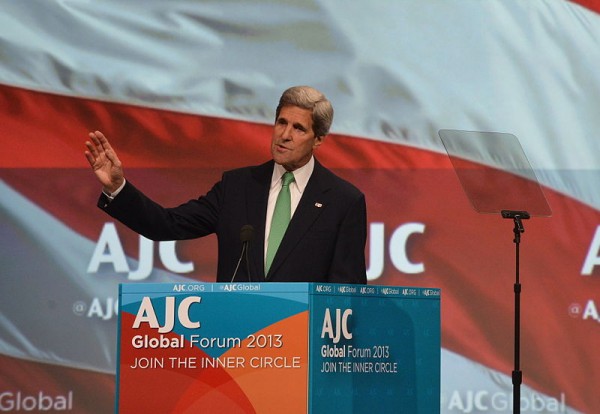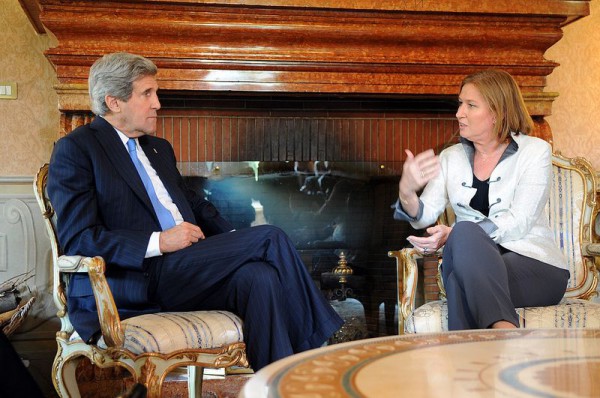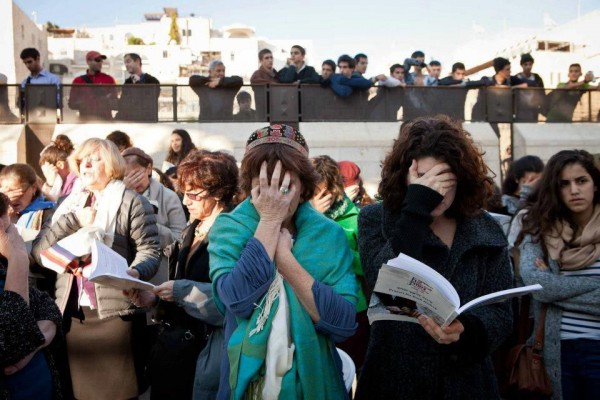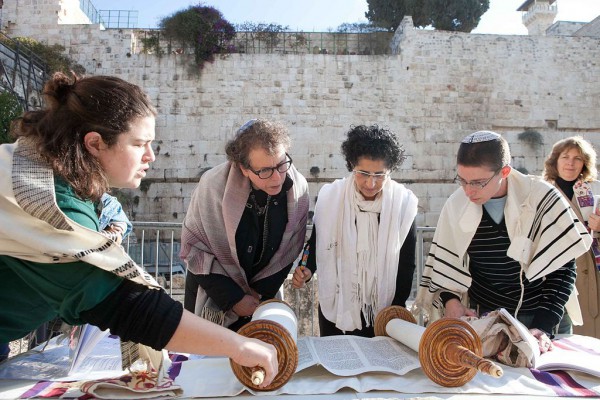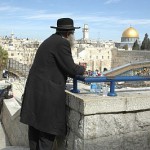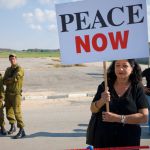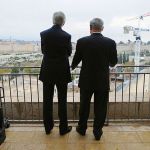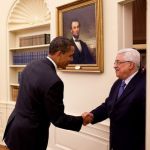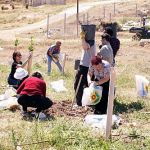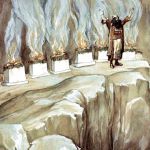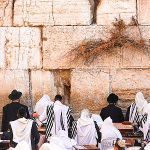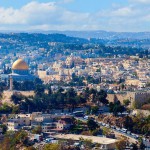All who have tried to create lasting peace between Israel and her neighbors have failed; yet, the Word of God says that one man will appear to succeed.
This man’s peace plan will begin the final countdown to the return of Yeshua HaMashiach (Jesus the Messiah).
In light of the urgency to make peace in the Middle East, it is vital to understand what the Prophet Daniel and Yeshua (Jesus) told us about this peace plan and the last days, so we can recognize the times and warn others also.
In the ninth chapter of the Book of Daniel, we read that Daniel, who was in exile in Babylon with the Jewish People, was studying the Book of Jeremiah looking for answers.
As he read, he understood that Jeremiah foretold a 70-year period of Babylonian captivity before the restoration of Israel would come to pass (Jeremiah 29:10).
Daniel’s heartfelt, moving response was to pray, confessing his sin and the sin of the entire nation of Israel.
As he prayed, the angel Gabriel came to him, telling him of an additional time period, this time of shevuim shevim (seventy sevens) or 490 years. This was the time that would elapse before sin would end and everlasting righteousness would be established:
“Seventy [shevim] ‘sevens’ [shevuim] are decreed for your people and your holy city to finish transgression, to put an end to sin, to atone for wickedness, to bring in everlasting righteousness, to seal up vision and prophecy and to anoint the Most Holy Place.” (Daniel 9:24)
End-Time Prophecy: What Are the “Seventy Sevens”?
Shevuim (sevens) is similar to the concept of a decade (10 years), but refers to a seven-year period.
Seventy sevens (70 X 7), therefore, represents a period of 490 years before the prophecy would be fulfilled.
Of these 490 years, 483 have been fulfilled with remarkable precision; they represent the time between the decree by the Persian king Artaxerxes to rebuild Jerusalem (Nehemiah 2:1–8) and the cutting off of Yeshua HaMashiach:
From the time the word goes out to restore and rebuild Jerusalem until the Anointed One, the ruler, comes, there will be seven [sheva] ‘sevens’ [Shevuim] and sixty-two ‘sevens.’ It will be rebuilt with streets and a trench, but in times of trouble. After the sixty-two ‘sevens,’ the Anointed One [Mashiach / Messiah] will be put to death and will have nothing. (Daniel 9:25–26)
From Artaxerxes’ decree (Ezra 7:13–28) to Yeshua’s death on the Roman execution stake was 483 years.
Many believe this leaves a seven-year span that has yet to be completed and will be fulfilled in the last days during the Tribulation Period.
Daniel describes that time in Daniel 9:27:
“He [the ruler at that time] will confirm a covenant [peace treaty] with many for one ‘seven.’ In the middle of the ‘seven’ he will put an end to sacrifice and offering. And at the temple he will set up an abomination that causes desolation.”
When Yeshua was asked about His coming and the end of the age (Matthew 24:3–15), He referred to the above verse.
Daniel 9:27, according to Yeshua’s end-time explanation, confirms that there will be a third Jewish Temple in the last days and a seven-year peace covenant, which likely will be brought about by the anti-Messiah.
Just as the Hebrew Prophet Daniel searched the Scriptures for clues to understand the time in which he lived, we also should be diligently searching the Scriptures.
Indeed, when we examine current events in the light of Bible prophecy, there can be no doubt that we are living at the end of the age.
The necessity remains to scrutinize world happenings so we may be prepared for whatever is coming, especially since recent attempts at peace in the Middle East may be a precursor for the fulfillment of Daniel’s final seven-year period.
This peace covenant will begin the 70th week in Daniel’s prophecy, the final seven-year stretch before the return of Yeshua.
Daniel also highlights the halfway point in the seven-year covenant, this leader will set up an abomination in the Temple, perhaps an image of himself to be worshiped. (The Book of Revelation also mentions a three and a half year period in Revelation 11:2–3; 12:6; and 13:5).
The Future of Israel as a Democratic Jewish State
Since there are mpassioned pleas among many nations to restart the stalled peace negotiations between Israel and the Palestinians, Daniel’s prophecy seems especially relevant today.
“What happens in the coming days will actually dictate what happens in the coming decades,” US Secretary of State John Kerry told the American Jewish Committee (AJC) Global Forum in Washington, DC.
“We’re running out of time. We’re running out of possibilities. And let’s be clear: If we do not succeed now—and I know I’m raising those stakes—but if we do not succeed now, we may not get another chance.” (New York Times)
Ever since Kerry took office, he has made it his mission to renew the dormant peace process by getting the Israelis and Palestinians back to the negotiation table.
The Obama administration has been trying to create movement on a two-state solution—one state for the Palestinians and one for the Jewish People.
Kerry believes that what is at stake is Israel’s future as a Jewish and democratic state.
“The best way to assure Israel’s future is an agreement resulting in two states for two people, each able to fulfill their national aspirations in a homeland of their own,” he told the AJC Global Forum.
“It’s not about rights,” Tzipi Livni said, “but the future of our children.” (WSJ)
There is great support for the two-state solution within Israel.
“The government’s position is very clear, and I support it: We do support [a] two states for two peoples solution. We are ready to make painful concessions on two conditions: that there will be peace and security,” Israel’s Strategic Affairs Minister Yuval Steinitz said at a Foreign Affairs and Defense committee meeting. (Times of Israel)
The Palestinians, who demand that the borders be returned to the pre-1967 demarcation line when Jordan controlled the West Bank, have yet to make these commitments.
Kerry’s guidelines for continued negotiations include no preconditions, no provocative statements on the part of the two parties, and the inclusion of the 1967 borders; however, he proposes land swaps that recognize changes that have occurred since 1967 (that is, recognition of the large settlement blocks which are in essence small cities in Judea and Samaria).
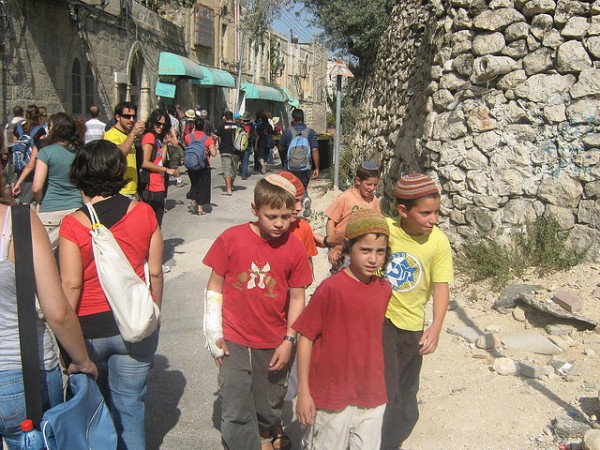
Israeli children in Hebron, which is currently split into two sectors: one controlled by the Palestinian Authority and one by Israel. Hebron dates back to Biblical times and is the site of the world’s oldest Jewish community. It is one of the first places that Abraham visited when he arrived in Canaan. Also, David was anointed king here. The Tombs of the Patriarchs (Abraham, Isaac, Jacob, Sarah, Rebekah and Leah) are located here as well.
Kerry also said that building Israeli settlements in Judea and Samaria (West Bank) was “not necessarily constructive with respect to the process.”
“We believe they should stop,” he said. (Haaretz)
While peace and security are definitely desirable, Paul tells us that in the last days people will believe they have finally attained it, but destruction will come suddenly instead.
Now, brothers and sisters, about times and dates we do not need to write to you, for you know very well that the day of the Lord will come like a thief in the night. While people are saying, ‘Peace and safety,’ destruction will come on them suddenly, as labor pains on a pregnant woman, and they will not escape. (1 Thessalonians 5:1–3)
The Bible also indicates that it is wrong to divide Israel and that the Lord will judge the nations for doing so.
“I will gather all nations and bring them down to the Valley of Jehoshaphat. There I will put them on trial for what they did to My inheritance, My people Israel, because they scattered My people among the nations and divided up My land.” (Joel 3:2)
The Universal Longing for Peace
The longing for peace is universal.
Here in the Holy Land, it seems especially strong among Israelis who have suffered trouble, persecution, and anti-Semitism for so many generations.
In fact, many Israelis are willing to give the Palestinians anything for the sake of peace.
In 1993, hope for peace was raised with the Oslo Accords.
But peace didn’t come. Just the opposite: the Accords were followed by two devastating intifadas (civil uprisings) that left many dead and wounded on both the Palestinian and Israeli sides.
Nevertheless, an Israel Peace Initiative-commissioned opinion poll found that a majority of Israelis (69 percent) would support the Arab Peace Initiative, if Israeli Prime Minister Benjamin Netanyahu backed the initiative.
The Arab Peace Initiative essentially calls for normalizing relations between the entire Arab region and Israel in exchange for a return to what are the indefensible 1967 ceasefire lines, giving up east Jerusalem and a number of Jewish neighborhoods, as well as resettlement of the Arab “refugees” back to Israel or monetary compensation.
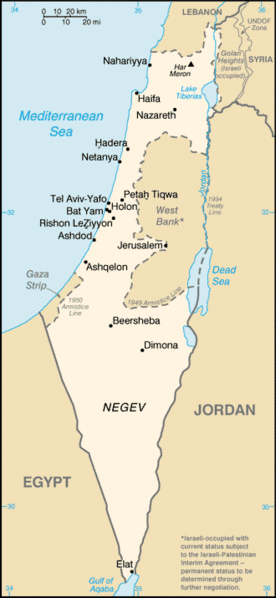
CIA map of the 1949 Armistice Lines, also called the 1967 borders and the Green Line, showing the West Bank as Jordanian territory.
Ground-Breaking Initiative
“Consider the blameless, observe the upright; a future awaits those who seek peace.” (Psalm 37:37)
In spite of the diplomatic situation, Israel continues to demonstrate its peaceful intentions toward Palestinians in other ways.
For instance, Israeli institutions continue to offer free medical and rehabilitative services to needy Palestinians.
One such initiative is Project Rozana.
Under this multi-faith partnership between Hadassah Medical Center in Jerusalem, Hadassah Australia Foundation and Anglican Overseas Aid, Palestinian children with acute medical needs will receive intensive care at Hadassah Hospital.
Also, training will be provided at Hadassah for Palestinian doctors, psychologists and trauma counselors from the West Bank and the Gaza Strip.
“All those trained will return to the West Bank and Gaza to build the capacity of the Palestinian health care system,” Hadassah Australia President Ron Finkel said. (Haaretz)
The project is named in honor of Rozana Ghannam, a five-year-old Palestinian girl whose life was saved by Hadassah last year after she fell from her ninth floor balcony in Ramallah.
When Rozana’s mother, Maysa Ghannam, saw that her daughter was still alive after the fall, she insisted that the ambulance take her directly to Hadassah (in Jerusalem, Jewish Israel) instead of Ramallah Hospital (Palestine territory in Israel).
“When we arrived at the checkpoint, I told the soldiers that Rozana must go to Hadassah Hospital. Everyone knows that while there is conflict between Israel and Palestine, none of that matters at Hadassah. I wanted the best for my daughter and what Hadassah achieved for her is a miracle, a miracle of life. If it hadn’t been for them, I don’t think she would have survived.” (Hadassah)
Rozana’s miraculous recovery and this latest Hadassah initiative will hopefully go a long way in building peaceful relationships between Palestinians and Jews.
While political negotiations for peace will ultimately lead to the Tribulation, programs such as Project Rozana and individual acts of kindness shine a light in the darkness and have the potential to bring about real change in people’s lives.
Yeshua, the Prince of Peace
“Blessed are the peacemakers, for they will be called children of God.” (Matthew 5:9)
Though the Sermon on the Mount (Matthew 5:1–12) makes it plain that righteousness is characterized by peacemaking (see also James 3:18), the Bible also states that Yeshua HaMashiach is the ultimate source of peace (Luke 19:42).
“Peace I leave with you; my peace I give you. I do not give to you as the world gives. Do not let your hearts be troubled and do not be afraid.” (John 14:27; see also John 16:33)
We understand from Scripture that true peace will come when the Messiah, the Prince of Peace, returns.
In the meantime, as we witness the fulfillment of Bible prophecy in current events, like the Hebrew Prophet Daniel, we should respond with heartfelt, sincere prayer.
That prayer should include prayer for the salvation of the Jewish People promised in Bible prophecy and for the peace of Jerusalem.
Pray for the peace of Jerusalem: ‘May those who love you be secure.’ (Psalm 122:6)
And I will pour out on the house of David and the inhabitants of Jerusalem a spirit of grace and supplication. They will look on me, the one they have pierced, and they will mourn for him as one mourns for an only child, and grieve bitterly for him as one grieves for a firstborn son. (Zechariah 12:10)




